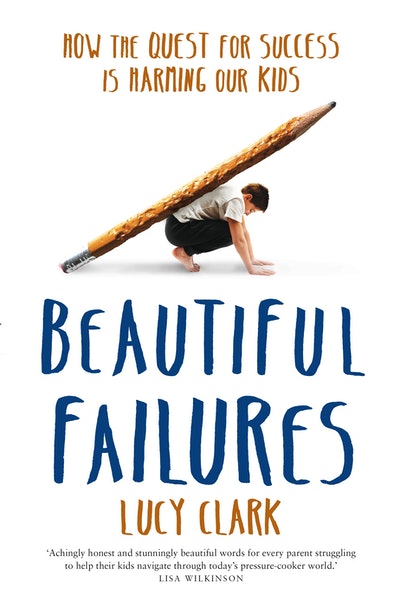Beautiful Failures author Lucy Clark offers 10 tips for parents.
What is going on with the crazy school pressure that kids are under today?
So many parents ask themselves this question, but don’t know what to do about it, and it wasn’t until my own daughter, my ‘beautiful failure’ opted out of school pressure – and failed school in general – that I started delving into questions about the way our education system works. What I found changed me as a thinker, and changed me as a parent, and challenges many accepted wisdoms about schooling.
We not only need to think about ways to cope with school pressure, but we need to look at the bigger picture of how we reduce school pressure. Until we can do that, here are my top ten tips for parents.
- Don’t worry about rankings – a number or a letter cannot describe your individual child, and a lot of children have strengths that aren’t measured by school systems.
- Don’t let homework become a point of conflict or a dreaded chore – if it is, don’t let your kids do it – it is a waste of precious playing time. Most importantly, do not DO your children’s homework.
- Don’t talk to your child’s teacher about grades. Talk to them about what engages your child, and about how they learn.
- Don’t try to get your kids into gifted and talented programs. Streaming is not what it’s cracked up to be.
- Don’t compare your child to others on the basis of grades. What is measured is so narrow and where they come in the class is meaningless.
- Be respectful to teachers – they are undervalued and underpaid and mostly have your child’s best interests at heart.
- Understand that the world is vastly different to when you were at school, so school is – or should be – different too.
- Do not worry about outcomes – worry about how much your child loves learning.
- Remember your child has only one childhood, and only one adolescence, and they should be having a good time. Adult worries are for adulthood.
- Join me in starting a vitally important and exciting conversation about the way we measure success and what school – and indeed, childhood – is for.













